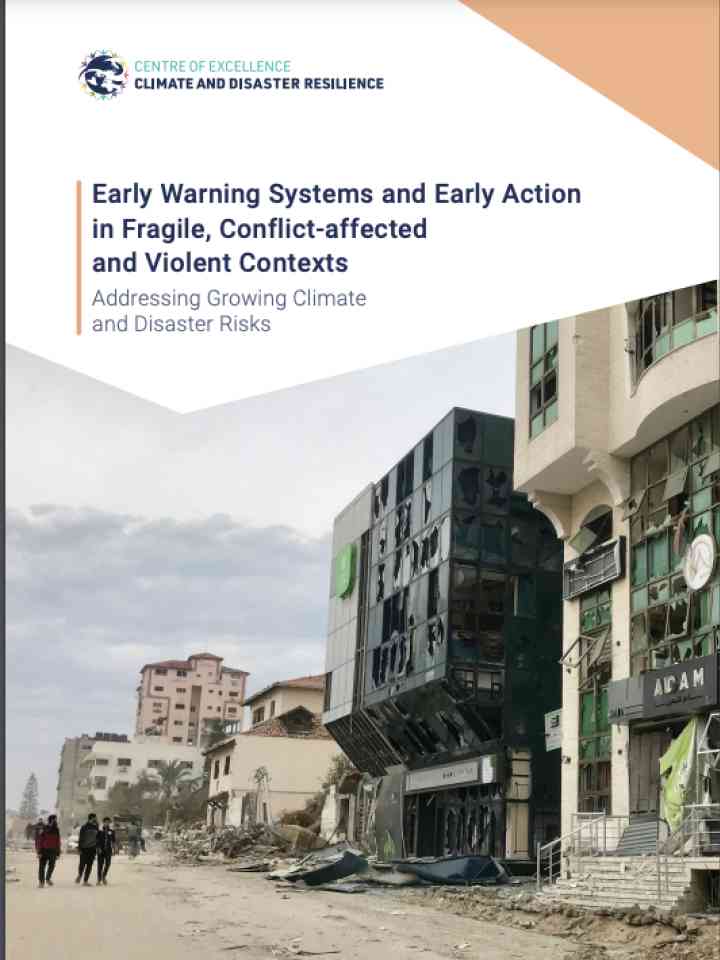Early warning systems and early action in fragile, conflict-affected and violent contexts: Addressing growing climate and disaster risks
The Handbook on Early Warning Systems and Early Action in Fragile, Conflict, and Violent (FCV) Contexts aims at bolstering climate action in the world's most vulnerable regions. Addressing the alarming intersection of fragility, conflict and violence with growing disaster (including climate) risks, the Handbook is a product of the Centre of Excellence for Climate and Disaster Resilience (CoE) together with its partners. Scaling up Multi-Hazard Early Warning Systems (MHEWS) in FCV contexts is a critical matter for saving lives and livelihoods, as well as a vital component of climate adaptation and resilience-building strategies.
Countries facing risks compounded by fragility, conflict and violence, comprise 19 of the top 25 most climate-vulnerable States. These nations face unique challenges, while compounding shocks and stressors under a changing climate make them most vulnerable to hazardous events. Enhanced collaboration among governments, international agencies, and local communities is essential to ensure that vulnerable populations are equipped with the knowledge and tools they need to mitigate risks and safeguard their lives and livelihoods.
Taken with other resources and approaches (of inter alia the IFRC, the Red Cross Red Crescent Climate Centre, the Climate Risk and Early Warning Systems initiative, etc.), this Handbook seeks to drive a comprehensive approach, to promote increased investment in EWS in FCV contexts, and to support local-level action by helping countries and vulnerable communities better anticipate disasters, protect vulnerable populations, and build long-term resilience to a rapidly changing climate.
